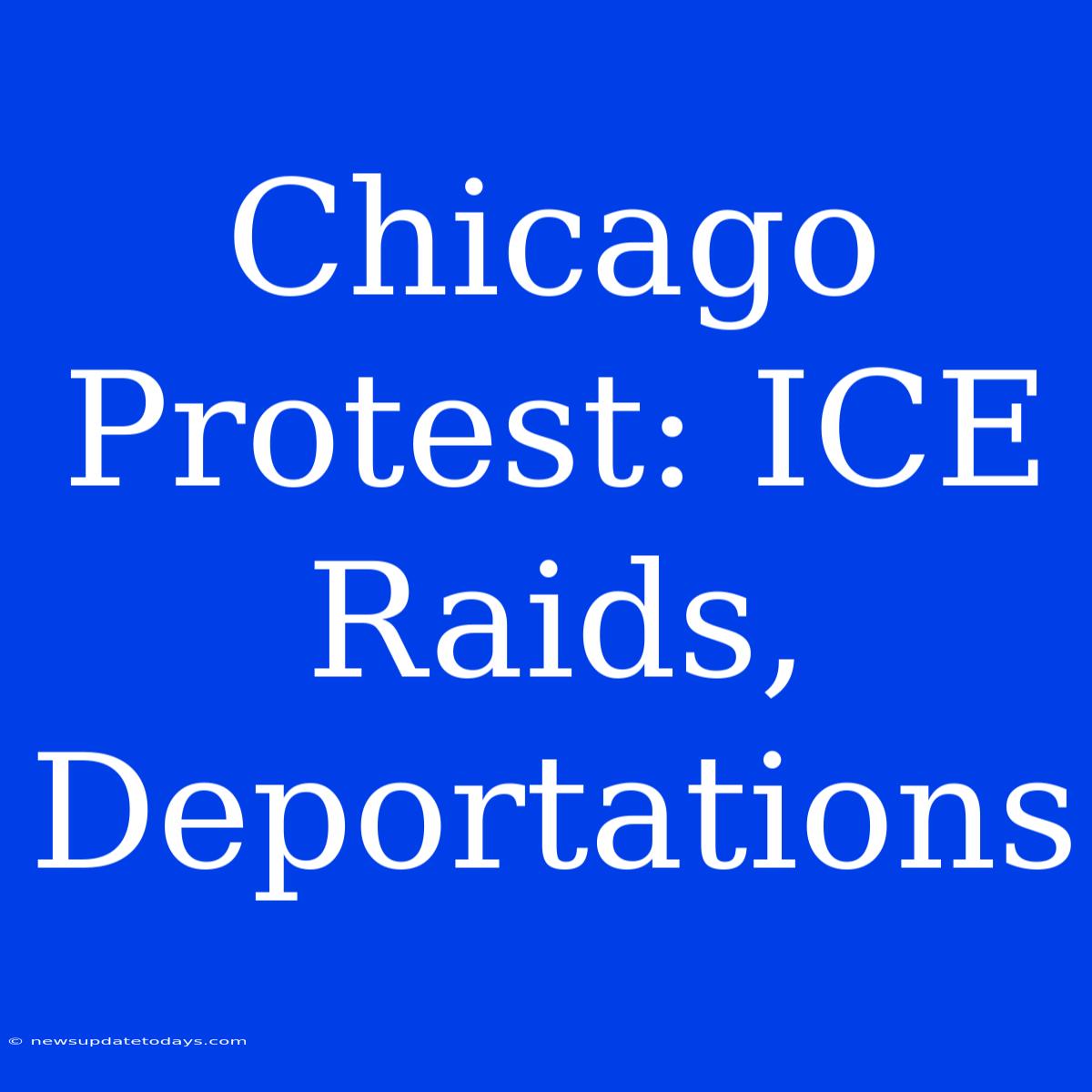Chicago Protests: ICE Raids and the Fight for Immigrant Rights
The recent wave of Immigration and Customs Enforcement (ICE) raids in Chicago has ignited a firestorm of protest, highlighting the ongoing struggle for immigrant rights and sparking crucial conversations about immigration policy and its human impact. These protests, fueled by fear and outrage, represent a powerful display of community solidarity and resistance against what many perceive as unjust and inhumane practices.
Understanding the Context: ICE Raids and their Fallout
ICE raids, while not new, have intensified in recent years, leading to widespread anxiety and disruption within immigrant communities. The fear of family separation and deportation casts a long shadow, affecting not only those directly targeted but also their families, friends, and neighbors. Chicago, with its large and diverse immigrant population, is particularly vulnerable to the impact of these raids.
The protests in Chicago are a direct response to these anxieties. They are fueled by:
- Fear of Family Separation: Many families live in constant fear of being separated, with parents potentially deported leaving children behind. This fear is a powerful motivator for community mobilization.
- Concerns about Due Process: Critics argue that ICE raids often lack due process, leading to arbitrary detentions and deportations without fair hearings. This lack of transparency fuels distrust and anger.
- Humanitarian Concerns: The human cost of these raids is undeniable. Stories of families torn apart and individuals deported to dangerous situations underscore the human rights implications of current immigration policies.
The Nature of the Protests: Voices of Resistance
The protests themselves have taken various forms, reflecting the diverse nature of the Chicago community:
- Organized Marches and Demonstrations: Large-scale marches and demonstrations have become a common sight, bringing together activists, community leaders, and concerned citizens to demand an end to the raids.
- Community Rallies and Vigil: Smaller, localized rallies and vigils are held to show solidarity with affected families and to offer support.
- Legal and Advocacy Efforts: Lawyers and legal organizations play a crucial role in providing legal aid and advocating for the rights of those targeted by ICE.
The Broader Implications: A National Conversation
The protests in Chicago are not isolated incidents. They are part of a larger national conversation about immigration reform, highlighting the need for:
- Comprehensive Immigration Reform: Many argue that a comprehensive approach is needed, one that addresses the root causes of migration and provides a pathway to citizenship for undocumented immigrants.
- DACA and other Protective Measures: The future of programs like DACA (Deferred Action for Childhood Arrivals) remains uncertain, emphasizing the vulnerability of undocumented immigrants and the need for stronger protective measures.
- Humanitarian Treatment of Immigrants: Protests demand a more humane and just approach to immigration enforcement, one that respects human rights and prioritizes family unity.
Moving Forward: A Call for Action
The Chicago protests serve as a powerful reminder of the ongoing struggle for immigrant rights. These protests are not merely displays of opposition; they are calls for action, demanding a fundamental shift in immigration policies and practices. The fight for a more just and equitable immigration system continues, and the voices of the protesters in Chicago play a critical role in shaping this vital national debate.

